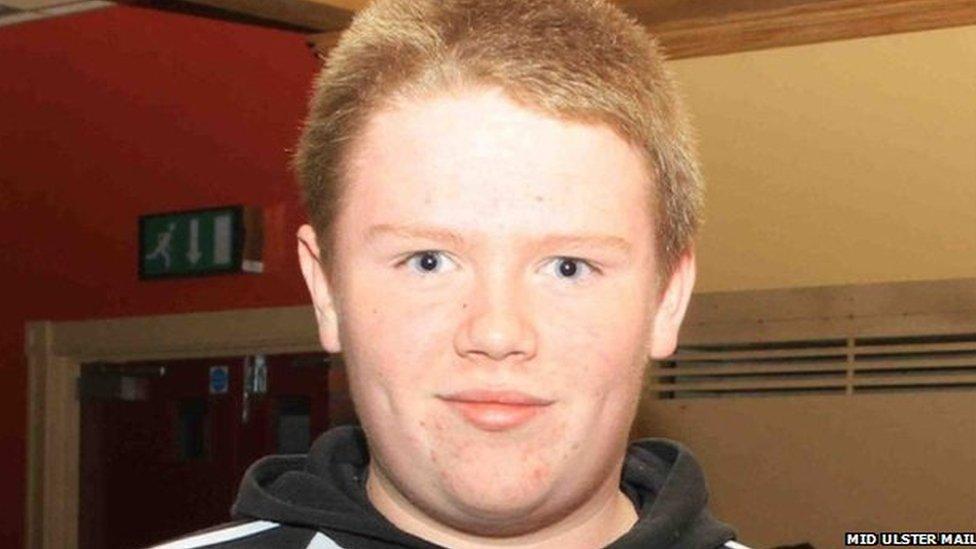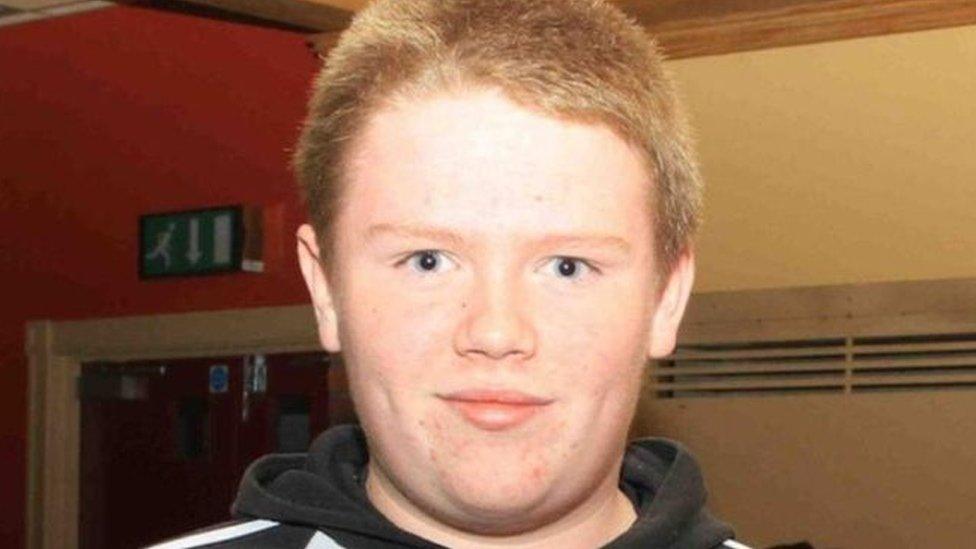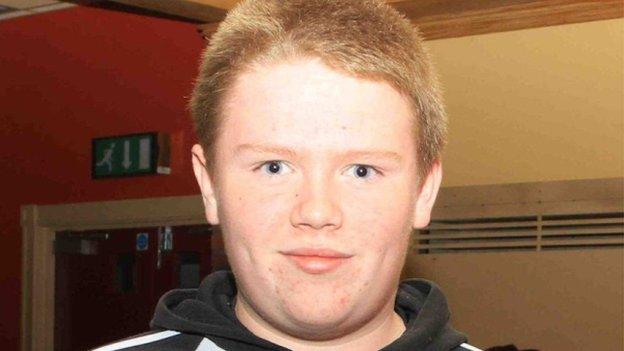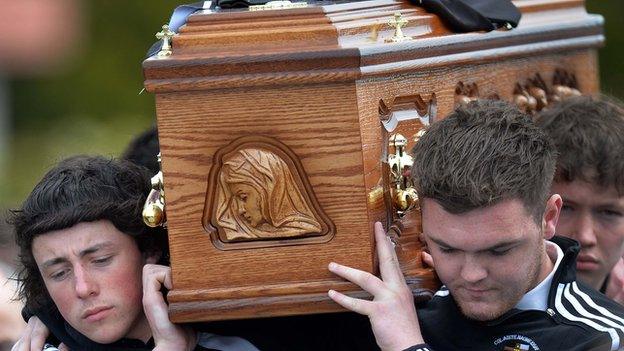Ronan Hughes: Four years for man who blackmailed teen
- Published

Ronan Hughes was a pupil at St Joseph's Grammar in Donaghmore and was a talented Gaelic Athletic Association (GAA) player
A Romanian man who blackmailed a County Tyrone schoolboy who later took his own life has been sentenced to four years in prison.
Coalisland teenager Ronan Hughes had been tricked into sharing intimate images of himself online.
The 17-year-old took his own life in June 2015 hours after some of the pictures were sent to his friends when he did not pay a ransom.
Iulian Enache, 31, pleaded guilty last week.
He appeared in a court in Timisoara, Romania, on charges of blackmail and producing and distributing indecent images of a child.
He was sentenced to four years in prison, but under Romanian law will serve three years.
Webcam blackmail
Ronan Hughes was a victim of what the police call "webcam blackmail".
Victims are tricked into sharing indecent images and are then told they will be sent to friends and family unless they pay a ransom.
At the time of his death, Ronan's parents said they believed their son had been targeted by a gang based in Nigeria.
But the PSNI's specialist cyber crime unit traced the computer used to blackmail the teenager to Romania and worked closely with police officers there to identify the suspect.
Iulian Enache was arrested last October in a joint operation between the PSNI and Romanian police.
His conviction is a huge success for the PSNI.
Unexpected success
At the time of Ronan Hughes' death, few expected any arrests to be made.
The police warned that catching anyone involved would be extremely difficult because they were based "on the other side of the world".
Welcoming the conviction, the PSNI said it had been "a complex and protracted investigation".
Det Ch Insp James Mullen said: "A four-year prison sentence is no compensation for the loss of Ronan Hughes - a young man who had his whole life ahead of him.
"However, there can be no doubt that the sentence means others will be spared the pain and loss experienced by the Hughes family at the hands of Enache."
He also appealed to parents and guardians to do all they can to keep their children safe from online criminals, and said anyone being targeted should seek help.
"I would also urge anyone who has experienced anything of a similar nature, or has received any inappropriate images or links, to contact police or tell a trusted adult," he said.
"You will not get into trouble. This tragic case highlights that police will do all they can to pursue these online criminals who are preying on our communities."
The PSNI says anyone who feels they have been compromised online in any way should call police on 101 - or 999 in an emergency.
- Published28 October 2016

- Published24 June 2015

- Published9 June 2015

- Published9 June 2015

- Published8 June 2015
